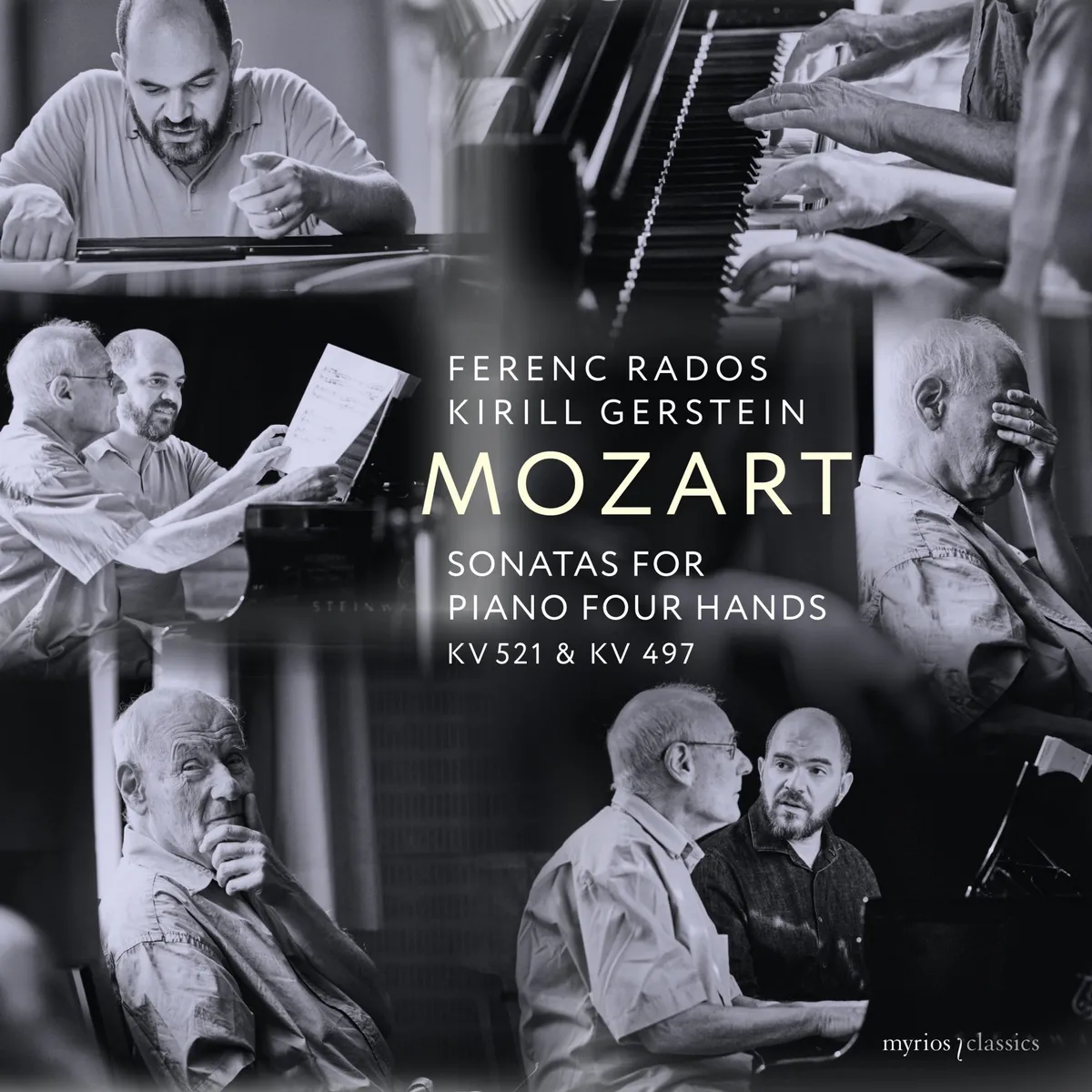
Mozart Sonatas for Piano Four Hands, K497 & 521 Ferenc Rados, Kirill Gerstein (piano) Myrios MYR029 65:01 mins
Hungary’s octogenarian teacher-pianist Ferenc Rados will be an unfamiliar name to many. To judge from the long and admiring booklet notes here by two fellow musicians, Kirill Gerstein and Steven Isserlis, Rados – former teacher of András Schiff and Zoltán Kocsis among others – might seem a typical domineering masterclass type, with a relentlessly hyper-critical attitude to everyone and everything, not excluding himself. (Gerstein tells us that during the four days of rehearsal and three of recording this release, a regular Rados comment was: ‘It is best that you take me to the airport now.’) This kind of caustic outward persona perhaps relates to a lifetime of dealing with the surrounding ‘Absurdistan’ world of Soviet-bloc Hungary. And on the evidence here, there’s no mistaking the level of musicianship that inspires such near-reverence among Rados’s admirers.
Gerstein admirably reins in his own powerhouse virtuoso skills in support of this piano-duet project. Rados’s contribution, meanwhile, varies between semi-routine – as in the C major Sonata, where he plays the lower, ‘secondo’ part – and mesmerising in the F major Sonata, where the more prominent upper ‘primo’ part seems (naturally) much more what he likes doing. This is an astonishing masterwork even by Mozartian standards, with the two players’ richly imaginative music-making accompanied by an undertone of additional vocalisings which are evidently another Rados trademark.
On a modern concert grand the piano-duet sound is maybe over-hefty for Mozart’s Classical idiom; then again, the music’s range of invention is so huge that it arguably demands an instrument like this to do it justice.
Malcolm Hayes